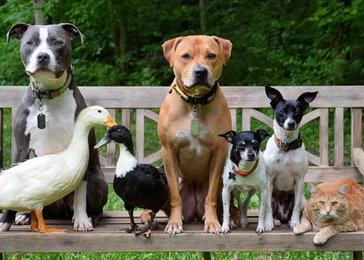 Author: Anđela Čeh (Social Inclusion Blog)
Author: Anđela Čeh (Social Inclusion Blog)
(…)We are born, we develop and we grow up in an environment which teaches us, again and again, about what are positions of privilege and how social values are established. They used to scare us that, if we misbehaved, Roma will steal us and sell us to a circus (they used a more offensive term, which I will not repeat even for the purpose of accuracy), and afterwards, they would be surprised when a Roma child would get beaten up in school. (…) They taught us how to look the other way when they suggested we should just avoid going to our schoolyard at night because that is where “druggies” gather, and then they would be shocked when our friends would end up in rehab for alcohol or drugs and we wanted to be there for them and support them. (…) No way they wanted to give up the idea that a family consists of a mom, a dad, and a child (or children), and then they would find it strange that children coming from divorced or single-parent homes or even adopted children would get humiliated or that they lived in constant pain because this perfect image was out of their reach.
And then some of us became people who, let’s say, don’t want to have their biological children. Or they want to adopt a child. Or, imagine this; want to start some different kind of family. (…) If the family is a place of support, trust, encouragement, strength, and love, then why is it important who is in it? Is it so hard to imagine that it could easily be, say, two women? Or, two women and a child?
I will never forget the horror that came over me while I was, seemingly very composed, telling my mother I was a lesbian. And while a river of back and forth replicas flowed, repeated word for word many times after that and surely would be said again, I was sitting on the edge of a sofa, which up until a few minutes ago had been this warm centre of my home, and in panic I was trying to think about where my suitcase and my passport were, and what else I had to manage to pack when she tells me I need to move out.
This agony I imagined never became my reality. However, it is the reality of a large number of LGBTI people in Serbia. How do those postulates of unconditional parent or family love become so easily this house of cards when someone says I … love? (…)
But nevertheless, we continue to crave acceptance and we tend to insist on reconciling what appears to be irreconcilable. House of cards and our own freedom. We are stubborn, angry, relentless, bull-headed if we want to sum everything up. It looks like we really do want everything and we want it now. Sometimes, not only do we forget that this house of cards is an ideal that remains flickering on the giant screen which hypnotises us all, but we also forget that this acceptance we crave is also a choice people have the right to make. Maybe we don’t leave enough space for negotiation. Maybe things are not as bad as they seem. I like to be optimistic: it is not that our parents and families are a priori ashamed, dismissive and they want to reject us and deny us their love and support, but they may just need more time. Maybe things we really want, come in a different package than we expected.
Maybe we don’t like the world and the society we encountered. We can look for culprits, but since we have already recognised the negatives, we can focus our energy and do our best to change things, discuss, persuade, react and act. (…)
The text in its entirety can be found on the Social Inclusion Blog.
 Government of the Republic of Serbia
Government of the Republic of Serbia















 pdf [271 KB]
pdf [271 KB]
Leave a Comment